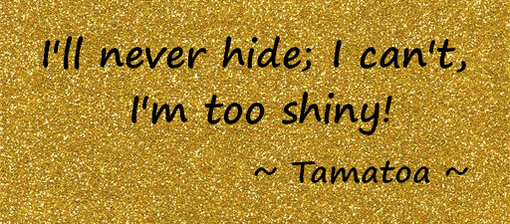Silver Wordsmith: An author's journey |
|
There’s a bit of disagreement with me and some of my fellow writers. Then again, try to go find an issue all writers agree upon, and we’ll see how long it takes for that task to kill you. So I’m not trying to pass myself off as a unicorn, but I do find that advice that promotes avoiding writing for the market primarily often is distilled into the simply rule of just writing for yourself and forget what anyone else thinks. But this distorted view of “writing for yourself” ignores a fundamental attribute of the storytelling craft – on the one hand you have the story, and on the other you have the telling, that is, the story must be heard in order to be told. I’m not advocating constantly catering to an imaginary audience. A story that pleases everyone is the golden fleece that a writer could sink their ship trying to find. But at the same time, an author that creates a story for the love of the art alone risks ripping the soul right of the work and leaving it a dead and useless thing. Not without some reservation I admit that I find little merit in works that are purposefully created to be difficult to access. I recognize the genius that it takes to put some of these works together and won’t pretend that somehow pop literature is the superior medium. Rather, I find them to be an art unto themselves, a separate category of literature that has moved so far away from the intent of storytelling that it should find itself in its own realm. It’s one of the reasons that you will never find me criticizing Dan Brown or E.L. James as someone who “should not be read”. Most anything can and should be read because it gets people reading, feeling, learning. The reader is at the heart of writing and when an author writers to exclude as large of a readership as possible, the work loses the heart. I can’t write without an audience in mind, and I admit the dangers are there. Occasionally I have to ignore the siren’s call of pleasing an imaginary reader at the expense of the story’s integrity, and sometimes I find myself sailing through the narrow straits between Scylla and Charybdis, wondering if I’m straying from the path the work needs to take in order to please someone who’s not there. It’s an approach not without flaws but it’s one that helps me sustain my writing. For Wake the Drowned, my first novel that I’m currently working on, I feel that the driving force has two parts to it. On the one hand, I’m writing it for myself – I need Charlie’s story to be told. But on the other hand, I also need Charlie’s story to be heard. The book is written as much for me as it is for the people who could either relate to Charlie, or learn something from Charlie’s experience. It is because of this belief that every story must be heard that I haven’t been able to write in silence and sought out others to read my work. Sometimes these people are referred to as “beta readers”, though I’ve often found the term to be much too informal. To me, these are the friends and family who helped keep my writing; my indispensable ones. In an earlier entry I’ve dragged readers through the broken glass field that was my early juvenile writing. Since my elementary school stories involved my friends and I kicking ass and taking names, their interest wasn’t that hard to grab. It was all a bit of good fun, until my one friend decided to make fun of the fact that in the story I married myself off to one of our classmates, so I sent him flying down from the tall mound of snow that our groundskeeper built on the side of the parking lot. I believe I mentioned before something about not exactly being a perfect child. Sorry Matthew. Early in high school, when my friend Bajer and I took turns narrating a Power Rangers: Lost Galaxy rip-off that was also populated by us and our friends, writing like that was no longer considered cool, and was mostly hidden by us in our lockers and read in the privacy of our own homes. My plans to create and star in a blockbuster television series based on our work fell through when I moved schools the following year. This was, however, where I find the support I needed to take my writing into the realm of a serious hobby. Sam, Sarah and Catherine had kindly let me into their circle of friends when I came to the new school, and then eventually goaded me into sharing with them my handwritten scribbles about teenage drama that would have probably become the longest and least necessary work of literature in the English language. The three girls really didn’t know what they were getting themselves into. Their general lack of good judgement is plainly demonstrated by the fact that one of them ended up marrying me a decade after we first met. To maintain their sanity while correcting my atrocious grammar, they took to making what they called “snide comments” on the margins of the page. These took the form of jokes, commentary on plot, silly observations, and for Catherine sometimes just plain screaming at me that my thinly-veiled emo allegory was not fooling anyone and I should just stop embarrassing myself. Thanks to their efforts and the laughs we’ve had around their remarks, I found a new reason to writer. Living vicariously through my writing, which was almost entirely focused inward, I was now writing to see what reaction I could illicit. The inward turned outward and I was writing for an audience. I wanted them to laugh, to think and to feel and to tell me what they thought of my work. I waited impatiently for them to go through my work not because I wanted to get the editing process out of the way but because I genuinely enjoyed seeing what they had to say. As a testament to my appreciation of all their efforts, I still have the stacks of marked-up stories stashed somewhere in the house, most likely only funny to us four. As is often the case when high school ends, friendships began to drift apart. Being the prudent individual that I am, in order to maintain some kind of readership for my writing, I conspired to marry one of my beta readers. Kidding, though that was one of the perqs of marrying Sam, especially when she decided to become an English major and could see things in my work that I didn’t even realize were there. Made me very much feel like a “real writer”. She’s my main beta reader now, the only one I really need. When I gave her the first draft of Wake the Drowned, before I had even given it a good edit, she suffered through the whole thing and told me she didn’t know quite what to say. She described the experience as being given some raw pancake dough to eat. It was her polite way of telling me to finish my damn work. So I would like to take this opportunity to thank everyone in my life who was willing to listen, like those I have already mentioned, Ms. Densford, my high school English teacher, Allan, my friend who edited my first published work, my mom, who was my kindred lit nerd in the family, and a special thanks goes to my dad, who’s never been much a book guy while I knew him.  Russian hockey legend Pavel Bure, and somehow one of the faces of my childhood Russian hockey legend Pavel Bure, and somehow one of the faces of my childhood The last book I remember him reading was a biography of Pavel Bure, and that was before we hit this century. Even though it was always my mom who cultivated my arty side, he was always watching from the outside. Any time I came to him to read my stuff, he put his all into taking a look. He was a very technical editor, and we disagreed once or twice on the finer workings of the English language. But in the few pages that he committed on, he taught me the values of consistency, plausibility and doing your research. He pointed out that my writing should not thrash about unconstrained, propelled only by convenience and what’s cool, but that the world has rules, and a writer should respect them. Of course, every rule has its legitimate exceptions, but for a fourteen year-old boy those were words I needed to hear. I lost my dad to cancer last year. In the weeks before he passed, it spread to his brain so he was left increasingly disoriented. But one of the last things we did together, is one evening I brought the current draft of Wake the Drowned, and I read it to him and my mom while he seemed to drift in and out focus, but looking like he was trying to listen intently. It was one of those images that has been burned into my mind from that last month – the dimly lit living room that always felt too large for comfort, me sitting next to my reclining dad, my mom hovering a bit away from us wrestling with every emotion ever described, our little family spending one of our last activities together. I can’t really say why I did it. Dad has always been a supporter of my writing with the caveat that I get a “real job” first. Able to reflect on this now in my thirties I think it was a solid piece of advice. I guess I was facing the uncomfortable realization that he would never see my novel, the first real fruit of a hobby that he gently tried to keep a hobby without extinguishing my passion for it. And in response to that, I wanted to give him an introduction to it. The story told me that it needed to be read to him. I can keep piling up explanations each more poetic-sounding than the last, but the bottom line is that it was his story as well. There will always be a part of him in the finished work, just like there will be a part of anyone who had ever read any of my writing, or helped with my writing, or just helped me be the person I am today. And for that, I will never stop sharing.
0 Comments
Leave a Reply. |
Michael SerebriakovMichael is a husband, father of three, lawyer, writer, and looking for that first big leap into publishing. All opinions are author's own. StoriesUrsa Major Categories
All
Archives
January 2024
|
Proudly powered by Weebly

 RSS Feed
RSS Feed